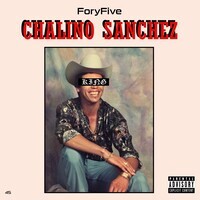

Many say that he was the "Rey de los Corridos" (King of Corridos) and that he was one of the best singers ever to sing in Mexico. He signed with numerous record labels, such as Discos Linda, Cintas Acuario, RR, Balboa Records Edimusa, and Musart. At about this time, he switched bands and formed Los Amables del Norte, producing some of his best songs while associated with them. He also performed at the Keystone Ford Show and Noches de Taconazo. In the early 1990s El Farallón was located in Lynwood, California but it closed its doors in 1999. Where he was accompanied by El Puma De Sinaloa, and El Farallón.

He was paid in a variety of ways, including cash, clothing, vehicles, and weapons.Ĭhalino performed in various California locations and venues, such as the notorious club El Parral Nightclub located in South Gate, California, el parral was being manage by Abel Orozco.

While Chalino was in the studio, he recorded various corrido tunes, such as "Armando Sánchez" (a tribute song to his murdered brother), "El Sapo," "Beto López," and "Los Sinaloenses." Ironically, Ángel Parra at first thought Chalino's voice was "unsuitable" for basic norteño music, but after Chalino released his first demo, his popularity began to grow in the Mexican American community.īy 1989, Chalino was recognized throughout California and requests were flowing in for him to sing in various venues. Ángel Parra arranged for Chalino to have a meeting at his studio, named "Angel Studios," and began recording his first demo cassette with a norteño group named Los Cuatro de la Frontera. One day while at work, Chalino was introduced to a man by the name of Ángel Parra, who became interested in his musical talents after hearing a small performance. Marisela is from the border town of Mexicali, Baja California. While concentrating on his regular business, Chalino's sister, Juana Sánchez, introduced him to Marisela Vallejos Felix, who would later give birth to two of his children, Adán Chalino Sánchez Vallejos and Cynthia Sánchez Vallejos. Upon his arrival, he began working in the fields of California's Coachella Valley and profiting from odd jobs given to him. In 1977, Chalino illegally immigrated to the United States with one of his close friends with the help of a local coyote or pollero (Human Trafficker) he crossed the border of Baja California. He later emigrated to California to escape Mexican authorities. His sister Juana was raped by a local "mafioso" who lived nearby, prompting Chalino to react by killing the man. When he was six years old his father died, throwing his family into turmoil. From an early age Chalino experienced tragedies and poverty. He had seven siblings: Armando, Lázaro, Régulo, Lucas, Espiridión (El Indio), Francisco, and Juana. His father was Santos Sánchez and his mother Sannorina Felix. Rosalino "Chalino" Sánchez (Aug– May 16, 1992) was a Mexican singer and songwriter.īorn and raised in a poor family on a ranch called "Las Flechas", Badiraguato, Sinaloa, Mexico.


 0 kommentar(er)
0 kommentar(er)
